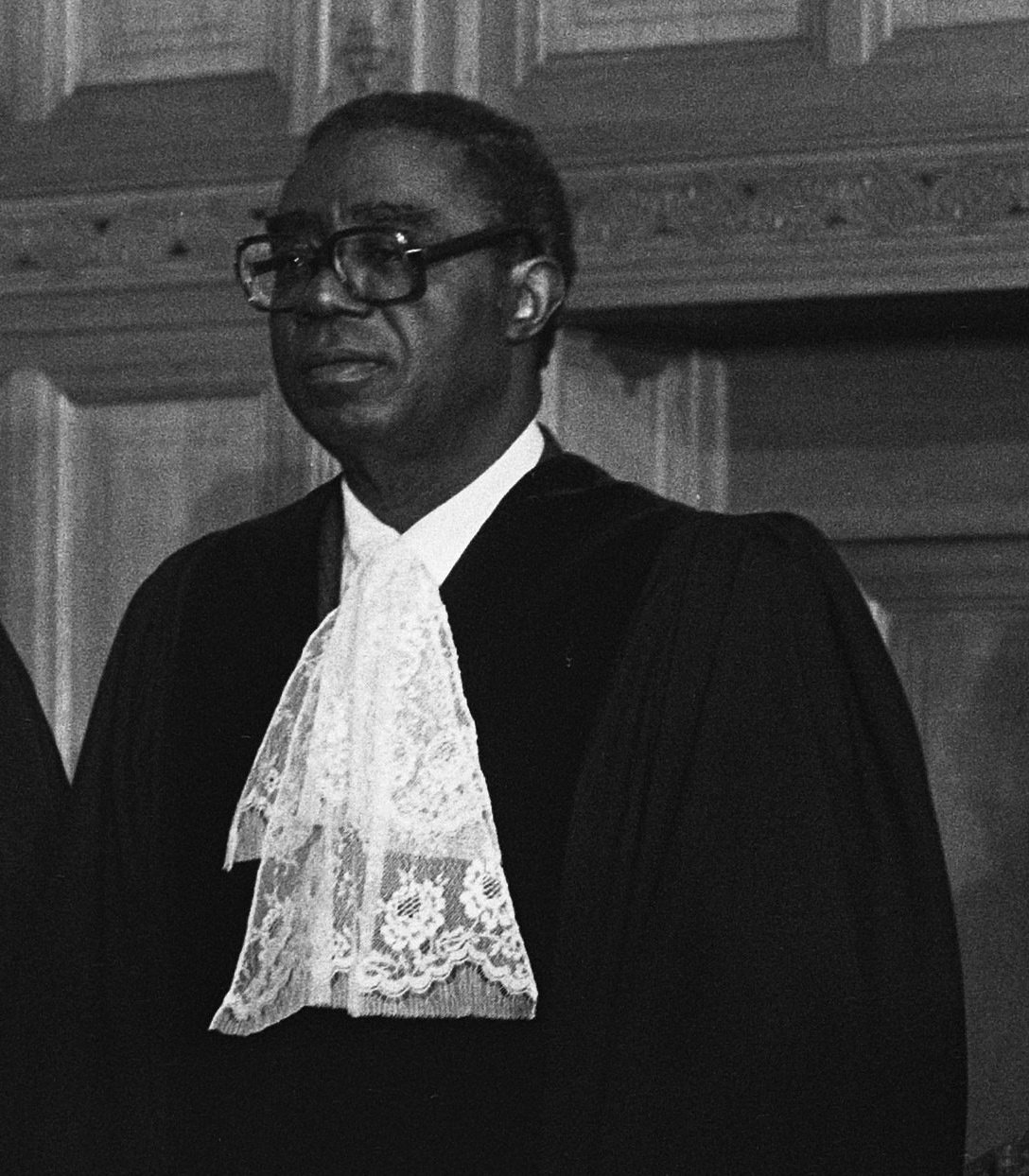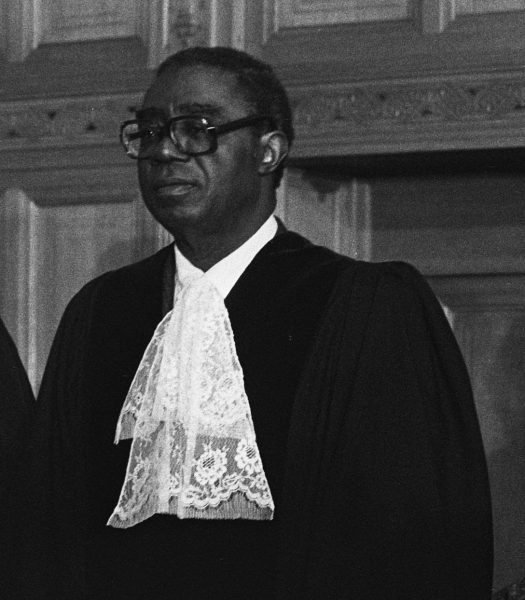Taslim Olawale Elias, a foremost Nigerian legal academic and jurist, was born in Lagos on November 11, 1914.
Read more about Throwback Thursday
Taslim attended Church Missionary Society (CMS) Grammar School and Igbobi College for his secondary. In line with common practice in the days of yore where young educated fellas join the government early, Elias began working as an assistant in the Government Audit Department just after passing the Cambridge School Certificate examination in 1934.
As early as 1932, Taslim Olawale Elias had married Ganiat Yetunde Fowosere, and the couple would both have 3 sons and 2 daughters together.
Taslim Elias eventually joined the Nigerian Railway Corporation in 1935 where he served in the Chief Accountant’s Office for 9 years.
Armed with his Cambridge School Certificate, Elias became an external student of Law in London. By 1944, he had left Nigeria for the United Kingdom and was admitted to University College, London.
He also spent some time at Cambridge Trinity College due to the incessant bomb attacks in London during World War II. Elias later graduated with a B.A. degree at University College and received the LL.B. in 1947. He was called to the Inner Temple bar, and he was a Yarborough Anderson Scholar in the year he received his LL.M degree in law. By 1949, he had earned a PhD in law as he completed graduate education in London.
Sign up to the Connect Nigeria daily newsletter
As a legal scholar, Elias got awarded a United Nations Economic, Social and Cultural Organization (UNESCO) Fellowship in 1951 to conduct research into the legal, economic, and social problems of Africa. Not long after earning the UNESCO fellowship, he was appointed the Simon senior research fellow at Manchester University in 1951.
As an instructor in law and social anthropology, Elias found a good footing to publish his first book, Nigerian Land Law and Custom.
He moved from Manchester to Oxford after 3 years at his position at Manchester University in 1954. He was appointed the Oppenheimer research fellow at the Institute of Commonwealth Studies, Nuffield College and Queen Elizabeth House in Oxford.
While still residing in the U.K, Elias published another research work in Nigerian law titled Groundwork of Nigerian Law in 1954. By 1956, Elias had become a professor of political science at the University of Delhi where he became instrumental in organizing courses in law, government, social anthropology as well as establishing the African Studies Department in the University. Elias also had brief lecturing stints at lectured at the Universities of Aligarh, Allahabad, Bombay, and Calcutta.
He would later publish two more books; Makers of Nigerian Law and The Nature of African Customary Law, still in 1956.
Featured Image Source: Wikipedia
Got a suggestion? Contact us: [email protected]


